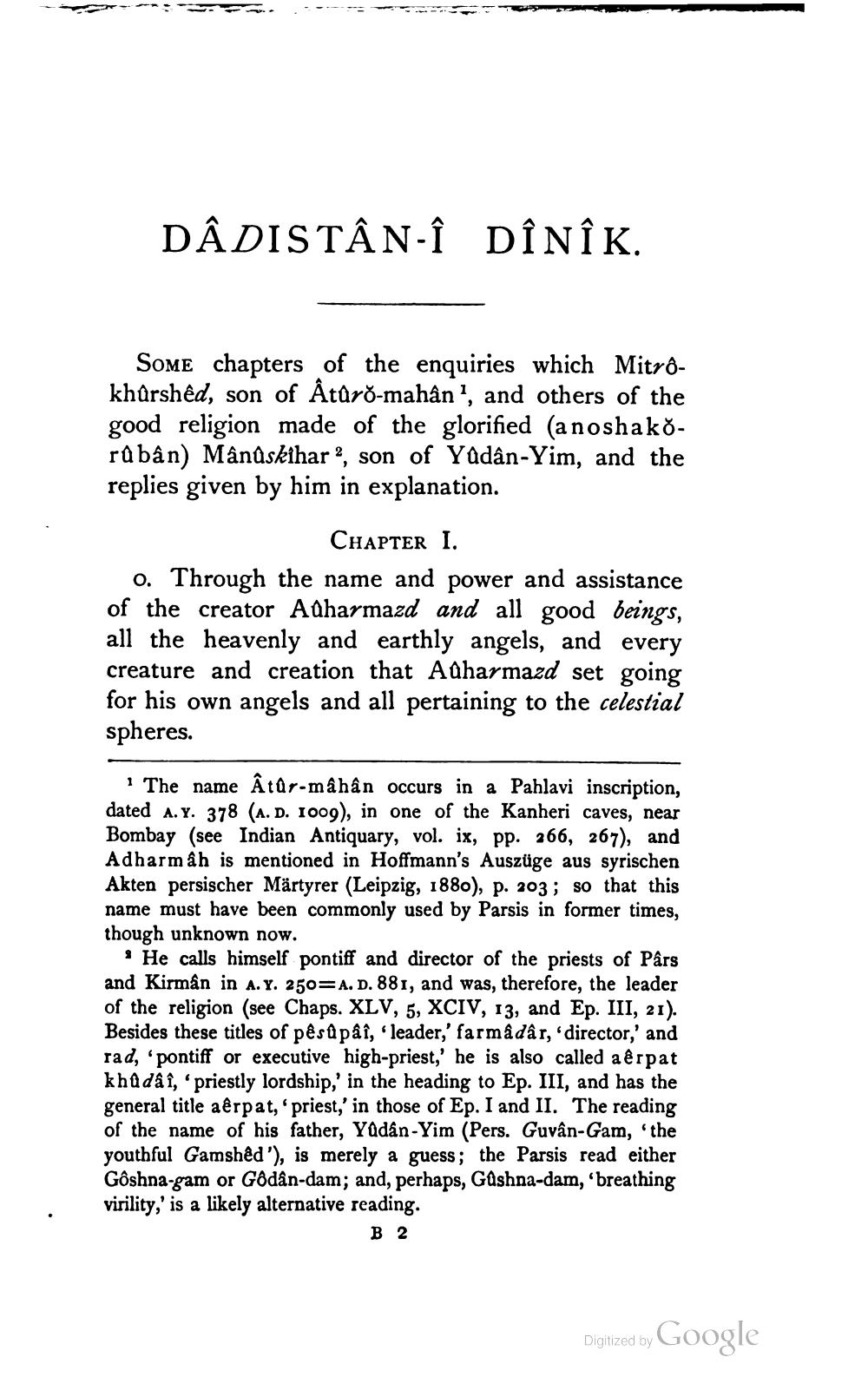________________
DÂDISTÂN-Î DÎNÎK.
Some chapters of the enquiries which Mitrôkhûrshed, son of Atūrð-mahân", and others of the good religion made of the glorified (a noshakora bân) Mângskihar 2, son of Yadân-Yim, and the replies given by him in explanation.
CHAPTER I. 0. Through the name and power and assistance of the creator Adharmazd and all good beings, all the heavenly and earthly angels, and every creature and creation that Adharmazd set going for his own angels and all pertaining to the celestial spheres.
The name Atūr-mâhân occurs in a Pahlavi inscription, dated A.Y. 378 (A. D. 1009), in one of the Kanheri caves, near Bombay (see Indian Antiquary, vol. ix, pp. 266, 267), and Adharm åh is mentioned in Hoffmann's Auszüge aus syrischen Akten persischer Märtyrer (Leipzig, 1880), p. 203 ; so that this name must have been commonly used by Parsis in former times, though unknown now.
• He calls himself pontiff and director of the priests of Pârs and Kirmân in A.Y. 250=A. D. 881, and was, therefore, the leader of the religion (see Chaps. XLV, 5, XCIV, 13, and Ep. III, 21). Besides these titles of pêsů pâî, leader,' farmádâr, director,' and rad, pontiff or executive high-priest,' he is also called aêrpat khu dâî, 'priestly lordship,' in the heading to Ep. III, and has the general title aêrpat, priest,' in those of Ep. I and II. The reading of the name of his father, Yadân-Yim (Pers. Guvân-Gam, the youthful Gamshed'), is merely a guess; the Parsis read either Gôshna-gam or Gâdân-dam; and, perhaps, Gushna-dam, 'breathing virility,' is a likely alternative reading.
B 2
Digitized by Google




